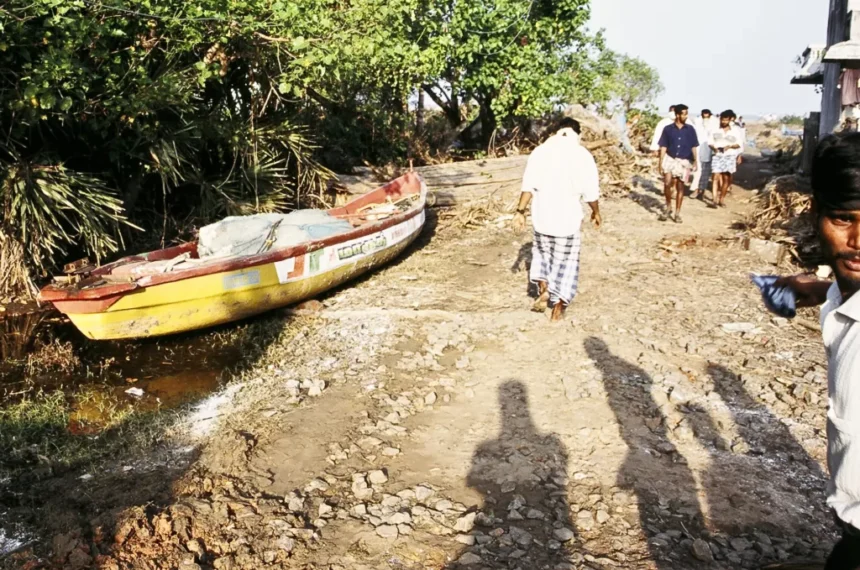The National Green Tribunal (NGT) has raised concerns over the encroachment of Chennai’s coastal zone, citing violations of the Coastal Regulation Zone (CRZ) Notifications 2019 and the Environment Protection Act, 1986. On July 10, 2024, the NGT took suo motu cognizance of the issue, following a report by The Times of India on June 14, 2024, highlighting illegal activities in Besant Nagar’s Kalakshetra Colony.
“The Great Beach Robbery: Chennai’s Coastal Zone Marred by Encroachment, Digging of Borewells,” highlights unauthorized construction and environmental degradation near the Arupadai Veedu Murugan Temple. The NGT’s southern zonal bench in Chennai will address the issue, with the next hearing on September 11, 2024. The Union Ministry of Environment, Forest and Climate Change, the Chennai Metropolitan Development Authority (CMDA), and the Tamil Nadu State Coastal Zone Management Authority (TNSCZMA) have been directed to file their responses a week before the hearing.
Rising coastal encroachment in Chennai
The Times of India’s investigative report uncovered the alarming rate of unauthorized construction along Chennai’s coastline. The report revealed that while the CMDA awaits approval from TNSCZMA for a Rs 100 crore beach redevelopment project, encroachers are seizing the opportunity to build permanent structures and dig borewells near the temple.
The article highlighted constant debris and garbage dumping blocking a natural floodwater channel near the temple, worsening the flood risk. The encroachment includes 30 pucca houses, four huts, and two unauthorized roads from Thiruvanmiyur Kuppam to the temple. Foundations for more houses have been laid, posing a threat to the coastal ecosystem.
Illegal activities in Besant Nagar’s Kalakshetra Colony could have severe environmental repercussions. Unauthorized constructions and borewell digging can disturb freshwater sources, leading to saltwater intrusion into aquifers and wells, impacting the availability of potable water for the local population.
The area is a nesting site for Olive Ridley turtles. Unauthorized development could disrupt these sites, endangering the species. The report also highlighted that soil erosion and floods could become more frequent as beaches, natural buffers against disasters, are compromised by construction.
Legal framework and tribunal action
The NGT’s intervention is based on the Coastal Regulation Zone Notifications 2019 and the Environment Protection Act, 1986, which aim to protect the coastal environment. The Tribunal’s power to take up the matter suo motu has been recognized by the Supreme Court in the case “Municipal Corporation of Greater Mumbai vs. Ankita Sinha & Ors.” in 2021.
The NGT listed key respondents responsible for addressing the issue in its order:
- Ministry of Environment, Forest and Climate Change, Regional Office, Chennai
- Chennai Metropolitan Development Authority (CMDA)
- Tamil Nadu State Coastal Zone Management Authority (TNSCZMA)
The Tribunal has issued notices to these authorities, directing them to submit their responses and action plans to address the encroachment before the next hearing.
Also Read: NGT Displeased Over Inaction on Illegal Mining Near Taj Mahal
Local and Government Response
The situation has sparked strong reactions from local environmentalists and residents. Many are calling for immediate action to stop the illegal activities and restore the coastal zone. “The beach is not just for fun; it’s an ecological zone that supports wildlife and protects inland areas from disasters,” said S. Ramakrishnan, a local environmental activist.
The CMDA and TNSCZMA are under scrutiny for their delayed response to the encroachments. Residents claim the delay has emboldened encroachers. The authorities assure they are working on a plan to address the issue and ensure compliance with environmental regulations.
As the September 11, 2024, hearing approaches, the focus remains on the NGT’s directives and the responses from the implicated authorities. The Tribunal’s intervention underscores the importance of protecting Chennai’s coastal zones from unchecked development and environmental degradation. The legal proceedings are hoped to lead to effective measures to reclaim the encroached areas and prevent future violations.
The Besant Nagar’s Kalakshetra Colony case is a reminder of the balance between development and environmental conservation. Ensuring sustainable development that respects ecological boundaries is crucial for the well-being of current and future generations.




